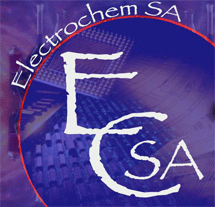

Presents: 7th International Symposium on Electrochemistry
"Electrochemical Solutions for a Sustainable Future"
13 - 16 April 2025
Speakers
Plenary Speakers
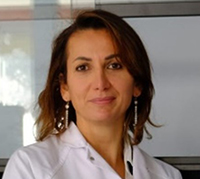 |
Prof Fabiana Arduini |
Fabiana Arduini is a Full Professor at Department of Chemical Science and Technologies, University of Rome “Tor Vergata”, founder of start-up SENSE4MED, DG at ISO9001 Certified Laboratory LabCap, University of Rome "Tor Vergata”, Editor of Green Analytical Chemistry Journal, Elsevier, Associated Editor of Microchemical Journal, Elsevier, Specialty Chief Editor Micro- and Nano- Sensors, Frontiers in Sensors, one of the seven relevant scientists selected by Italian Ministry of Defence for studies on depleted uranium, and Coordinator of Italian Sensor Group, Italian Chemical Society 2019-2021. Her research activity deals with the development of miniaturised electrochemical devices mainly using screen-printed electrodes modified with nanomaterials and paper-based analytical tools applied in environmental, biomedical, agrifood, and defense sectors, with over 200 articles published in peer-review journals, H index 61, Scopus source, > 10 patents, coordinators of several national/international projects including Horizon Europe Pathfinder project Phoenix-OoC (March 2024- February 2027). Her name is listed in the top 2% of most cited researchers in the world. |
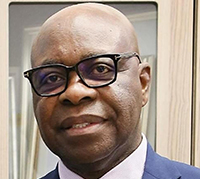 |
Prof Emmanuel Iwuoha |
Emmanuel Iwuoha is an A-Rated Scientist and DSTI/NRF SARChI Chair (Tier 1) for NanoElectrochemistry and Sensor Technology, at the University of the Western Cape (UWC). He was admitted as a Chartered Chemist (CChem) in 1990, a Fellow of the Royal Society of Chemistry (FRSC) in 1999, a Fellow of the African Academy of Science (FAAS) in 2018 and a Fellow of the Royal Society of South Africa (FRSSAf) in 2023. He is the Founding Director of the UWC Sensor Laboratories (SensorLab), which was established in 2002 as a centre of excellence in electrochemistry. Prof Iwuoha specialises in materials electrochemistry with applications in sensors, energy generation and energy storage. He has published over 400 research articles, given more than 75 plenary and keynote presentations and graduated over 85 PhDs. An Honorary Fellow of the Royal Society of Chemistry (HonFRSC) was conferred on him in 2020. He won the 2023/2024 NSTF-South32 Award for Engineering Research Capacity Development. He is a member of the editorial advisory boards of the Journal of the American Chemical Society Gold (JACS Au) and Bioelectrochemistry. |
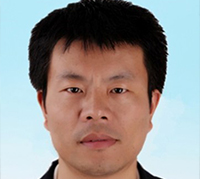 |
Prof Minghua Zhou |
Minghua Zhou obtained his doctorate from Zhejiang University (China) in 2003. He was at College of Resource and Environment, Zhejiang University as assistant and associate professor from 2003 to 2006. After his postdoctoral stay at the University of Sydney, he joined in Nankai University as full Professor in 2008. He has undertaken Marie Curie More Experienced Research Fellow at University of Kuopio, Finland and invited professor at Université Paris-Est in France. He is currently Distinguished Professor and Associate Dean of College of Environmental Science and Engineering at Nankai University, director of Tianjin Advanced Water Treatment Technology International Joint Research Center and vice director of Tianjin Key Laboratory of Environmental Technology for Complex Trans-Media Pollution. His current research interest includes water pollution control technology, environmental catalysis, advanced oxidation processes (AOPs), and particularly Electrochemical Process Engineering and Technology including electrochemical engineering (electrochemical materials fabrication, hybrid process and reactor design), environmental remediation (anodic oxidation, electro-Fenton, photoelectrocatalysis, electro-peroxone), electrosynthesis of chemicals (H2O2, NH3), and bioelectrochemistry (microbial fuel cell). He has published more than 300 peer-review SCI indexed papers with more than 23,000 citations and h-index of 84, 30 authorized patents, 4 books and 8 book chapters. He received 1 first-class research award and 5 second-class research awards of provincial and ministerial level in China and 2 international awards. He has been awarded as “Ten thousand plan”- Leading Talents in Science and Technology Innovation, “Most Cited Chinese Researchers” (Environmental Science) by Elsevier since 2014, and World's Top 2% Scientists (Stanford). He is vice-chair of Division 5: Electrochemical Process Engineering and Technology, International Society of Electrochemistry, editor of Electrochim Acta, and guest editor or member of Editorial Board of several scientific journals, such as Chemosphere, Separation Purification Technology, Chinese Chemical Letters, Catalyst and Journal of Chemistry. |
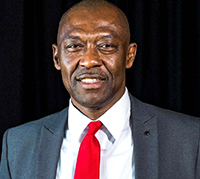 |
Prof Kenneth Ikechukwu Ozoemena |
Kenneth Ozoemena is Research Professor at the University of the Witwatersrand (Wits) where he heads the South African DSI-NRF-Wits SARChI Chair (Tier 1) in Materials Electrochemistry and Materials Technologies (MEET). Prior to joining Wits in 2017, he had worked at Rhodes University as Andrew W Mellon Foundation Lecturer in Chemistry (2004 – 2006), University of Pretoria as a Senior Lecturer in Chemistry (2006 – 2009), Council for Scientific and Industrial Research (CSIR) as Chief Research Scientist and Research Group Leader of the Electrochemical Energy Technologies (2009 - 2017). He has published extensively on energy storage and conversion, electrocatalysis, and electrochemical sensors. |
|
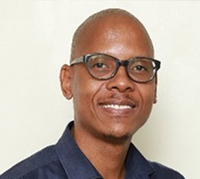 |
Prof Katlego Makgopa |
Prof Katlego Makgopa is a C2-rated researcher recognized by the National Research Foundation (NRF), South Africa, and serves as the President of the South African Nanotechnology Initiative (SANi). His current research interests entail the electrochemistry of nanostructured materials (i.e., carbon nanomaterials, metal oxide/ phosphate nanoparticles and metal-organic frameworks) and their potential applications in energy storage (i.e., supercapacitors and lithium-ion batteries) and conversion (i.e., fuel cells and photovoltaics), as well as hydrogen production and wastewater treatment. He has extensively published his research findings in various high-impact, internationally peer-reviewed journals in the form of articles and book chapters, and edited 1 book. He has supervised/ co-supervised several postgraduate students (MSc/MTech and PhD) to completion. He presented his research outputs at several scientific conferences both nationally and internationally as a keynote, Plenary, and Invited Speaker. He has participated as a reviewer for many accredited international journals in reputable publishing entities (i.e., RSC, ACS, Elsevier, etc.), is a member of several scientific/professional societies (SACNASP, SACI, and SANi), and has attracted several funding from NRF, South Africa. |
|
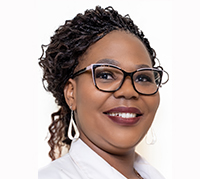 |
Associate Professor Usisipho Feleni |
Prof Usisipho Feleni is an Associate Professor and a C2 NRF-rated researcher in the Institute for Nanotechnology and Water Sustainability (iNanoWS). Her research expertise is on electrochemical biosensors, electrocatalysis/catalysis for monitoring disease biomarkers (pathogens for SARS-CoV-2) and pharmaceutical contaminants in water. She has published more than 80 papers in the areas of various nanomaterials and their applications in electrochemical sensors, electrocatalysis and photocatalysis. Additionally, she is currently supervising/co-supervising MSc and PhD students. Prof Feleni obtained external research grants from TIA, NRF, SAASTA, TESP, RSC, WiR and University of Michigan STEM-Africa Initiative. Her recent awards and recognition include: (i) 2025 South African Medical Research Council Bronze Award, (ii) 2024 NRF Excellence Award: Early Career/Emerging Researchers; (iii) 2024 UNISA’s Women in Research Leadership Award; (iv) 2022/2023 TW-Kambule NSTF Award: Emerging Researcher; (iv) 2023 South African Women in Science, Distinguished Young Women Researcher; (v) Standard Bank Top Women Awards: Top Women Leader in STEM 2023; (v) 2022 Principal’s Award for Excellence in Research; and (vi) the University of Michigan African Presidential Scholars (UMAPS) Fellowship 2021/2022. She has made several keynote and guest speaker presentations at National and International Universities. |
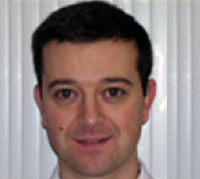 |
Dr Philippe Banet |
Dr Philippe Banet is Associate Professor at Laboratory of Physicochemistry of Polymer and Interfaces (LPPI) at CY Cergy Paris University (CYU) in France. He’s an engineer graduated from Ecole Nationale Supérieure de Chimie et de Physique de Bordeaux in 2001 and he received in 2004 his PhD degree in chemistry from University of Montpellier. After a postdoctoral position in Pr. Moreau’s group in ENSC Montpellier and a second one in Dr. Tran-Thi’s group in CEA-Saclay he joined CYU in 2007. He works on polymers and nanomaterials in the field of electrochemical biosensors and energy storage devices. His research deals with (bio)functionnalization of electrodes or surfaces by various methods: self-assembled monolayers, electrochemical deposit, hydrolysis condensation... Moreover, he is interested in the use of nanomaterials (metallic nanoparticles, carbon nanotubes) to develop new sensing transduction process in order to enhance the sensitivity of electrochemical biosensors and to increase performances of supercapacitors. |